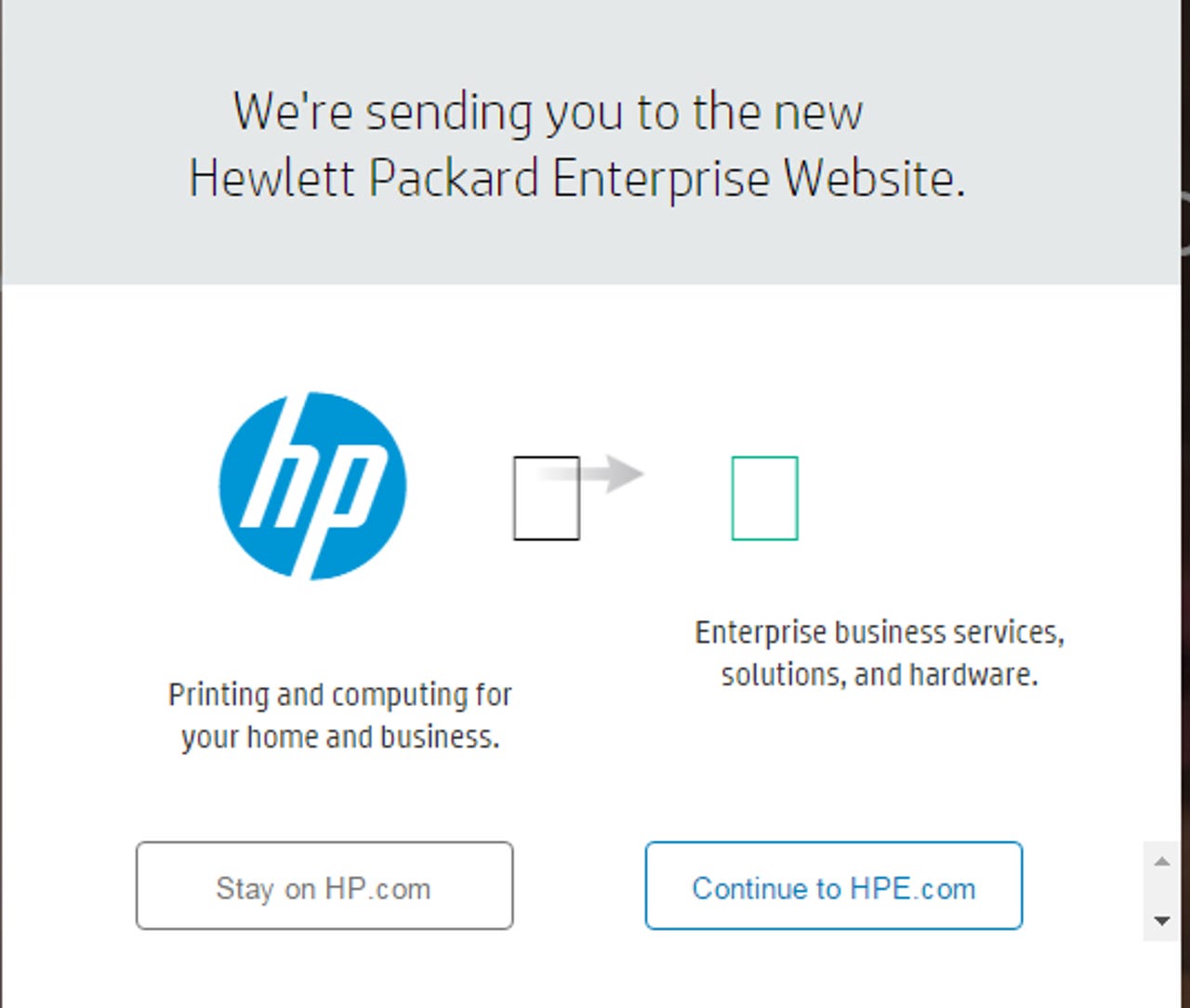HP Inc., HPE launch: Questions abound for both


Hewlett-Packard has officially split into two companies--one focused on PCs and printers called HP Inc. and Hewlett Packard Enterprise. Will either company be able to grow and transform their own operations as well as customers?
The argument is that splitting HP will result in two nimble companies that can change the computing game. The reality is that both companies may be challenged to grow.
Hewlett Packard Enterprise's site (HPE) notes that "tomorrow belongs to the fast." HP Inc. simply says welcome to the new HP. The reality is that little has changed so far. The storylines go like this:
- HP Inc. relies on a PC and printing legacy business that will struggle to grow. HP Inc. future growth rides on an entry to the 3D printing market.
- HPE is cutting workers and trying to automate more. HPE's pitch is that it has created a company that has transformed and "defied business as usual."
What's unclear is whether the split provides much benefit going forward. Meanwhile, the former Hewlett-Packard has split into two parts when other companies such as Dell and EMC are merging for scale. All tech giants--IBM, HP, Dell, Oracle and Cisco--are going through some transition due to mergers, business shifts and leadership changes. HP Inc. and HPE will be worth watching closely.
More: Trend Micro acquires HP's TippingPoint security team in $300 million deal | HP Enterprise's Whitman pans Dell's EMC purchase over debt | HP board sets corporate split for Nov. 1; HP Enterprise trades Nov. 2 | HP Inc.'s future growth rides on 3D printing inroads | HP Enterprise: Can it overcome layoffs, split growing pains, and FUD?
FBR analyst Daniel Ives said in a research note:
The IT spending environment is becoming a bipolar landscape. While fertile areas such as big data analytics, cloud computing, and cybersecurity have been white-hot and have been growing more than 30%-40% per year, traditional hardware, services, and implementations in the datacenter have been in quicksand mode, with many segments seeing flat to declining growth prospects. We view 2016 as a pivotal year for some of the once-dominating tech stalwarts to prove that a turnaround could be in the cards despite Everest-like growth challenges. In different ways, all these tech behemoths are trying to go after the $100 billion-plus next-generation datacenter pie and put fuel back in their growth engines, a task that seems much easier said than done.
Some analysts question whether HP Inc. and HPE can grow much beyond gross domestic product in the United States. These questions are valid. In fact, HPE and HP Inc. face nothing but questions. Here are a few:
- Will either company invest in innovation? HP's research and development spending was on the rise, but never recovered from the cuts under former CEO Mark Hurd. The two HPs won't have to fight over research and development spending, but that doesn't mean the floodgates will be open for innovation. The proof will be in the research and development spending as a percentage of revenue.
- Can the two HPs still work as one in large enterprise accounts? HP and HPE have a bevy of agreements in place so customers can procure PCs and servers as if they were buying from one company. Over time, however, and divergence between HP Inc. and HPE could lead to customer headaches.
- Is Dell/EMC vulnerable? Dell and EMC are merging at some point and HPE and HP will look to take advantage. HPE can win customers and layer in HP Inc. for PCs. The big chore for both companies is to make sure they have their own houses in order and then poach customers from rivals.
- Will the restructuring-go-round lead to growth? Both companies have job cuts, but HPE is plotting much larger layoffs. It's not clear that these companies can cut their way to growth.
- Does HPE have an answer for the cloud computing movement? HPE is primarily a hybrid and private cloud player. Will HPE be able to fend off the likes of Amazon Web Services?
- Will 3D printing save HP Inc.? Next year will be HP Inc.'s big 3D printing splash, but the market is already limping. If 3D printing doesn't turn into a growth engine for HP Inc. the company will have to rely on PC and printer sales for any real gains.